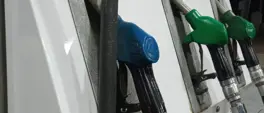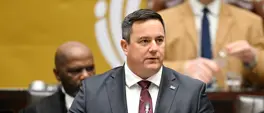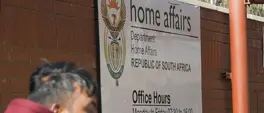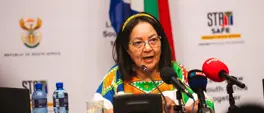NKANYISO NGQULUNGA: The new GNU - rethinking foreign policy in Africa
Nkanyiso Ngqulunga
16 July 2024 | 7:00The formation of the Government of National Unity means South Africa's foreign policy, particularly concerning Africa, may require substantial reassessment and adaptation, writes Nkanyiso Ngqulunga.
The 2024 elections in South Africa have ushered in an era of unprecedented political change, curtailing the longstanding dominance of the African National Congress (ANC).
A Government of National Unity (GNU), comprising various opposition parties, has been established.
The Democratic Alliance (DA) that is in the GNU with the ANC has a policy approach that is very pro-Western, which is a departure from South Africa's non-alignment.
IMPLICATIONS FOR SA FOREIGN POLICY IN AFRICA
While the ANC continues to hold a significant role in governance, forming a coalition government necessitates policy concessions.
Consequently, South Africa's foreign policy, particularly concerning Africa, may require substantial reassessment and adaptation.
Ronald Lamola’s appointment as the new Minister of International Relations marks a significant shift. He succeeds Naledi Pandor, renowned for her diplomatic prowess and notable achievements, including spearheading South Africa’s case against Israel at the International Court of Justice over genocide against Palestinians.
The new administration consists of different parties who have in the past displayed different points of view on foreign policy issues, with the DA calling for the government to condemn Russia for the invasion of Ukraine.
The DA did not address foreign policy in their 2024 election manifesto, and it is unclear what their position is on the African Union (AU), given the continent’s many challenges, including civil wars, military coups, and ongoing conflicts. The shift also occurs at a time when the EU, US, Canada and Japan have implemented trade measures that may have an extraterritorial impact on the African continent.
These new trade hurdles may be experienced by Africa in the face of protectionism, as such, African exporters could face challenges in meeting these international standards and regulations, whilst facing higher tariffs.
The global shift happens at a time when the African Continental Free Trade Area (AfCFTA) has not been fully implemented to improve infrastructure to foster growth and diversify African economies through intra-trade.
The harmonisation of legal cooperation in ensuring trade and good governance and overcoming each country's regulatory challenges that may hinder the implementation.
REFOCUSING ON AFRICA
As a regional powerhouse, South Africa must recalibrate its focus on the African continent, the political landscape of which is fraught with complexities, and exacerbated by external pressures and internal disagreements.
The AU faces the formidable task of unifying diverse interests amidst geopolitical shifts. Countries like Niger, Burkina Faso, and Mali have seen populist military regimes rise in defiance of perceived neocolonial influences, leading to heightened tensions and regional instability.
The decision by the Alliance of Sahel States (AES) to leave the Economic Community of West African States (ECOWAS) will not be without political costs; these three countries depend heavily on ECOWAS states for formal and informal trade activities, including fast-moving consumer goods.
The region is plagued by a range of issues, from mercenaries and human traffickers running Europe-bound transit routes through Mali and Niger. These three countries have established themselves as a new economic and security bloc, making a case for their sovereignty and seeking to free themselves from their 'colonisers.'
All these Western African countries fall into the West African Monetary and Economic Union (WAEMU), and AES constitutes about 30% of the WAEMU GDP.
The dream of continental integration through the AfCFTA will be elusive, as consensus will prove difficult to reach if these three countries isolate themselves. It is also not feasible to completely economically isolate these countries because Benin and Togo benefit from logistics businesses as transit countries.
They are unlikely to forgo that economic activity, further complicating the movement of migrant workers in the region, which still uses one currency.
Their recent treaty signing does not appear to have a coherent security or economic plan. It seems to be a case of a few power-hungry military generals taking over without the actual will of the people.
Rwanda’s involvement with the M23 in Congo, ongoing conflicts in Ethiopia, and the dilemma surrounding Somaliland’s recognition are just a few examples of the intricate challenges facing the continent.
African leaders are navigating a complex web of alliances and influences from global powers such as China, Russia, and Western nations.
ADDRESSING EXTERNAL INFLUENCES
The South African Reserve Bank (SARB) has cautioned that the EU Carbon border adjustment mechanism (CBAM) could slash SA’s exports by a hefty 10% by 2050, wiping out about 2.6 million jobs in the process.
The central bank said that “all export sectors experience declines as coverage of the CBAM extends to all sectors of the economy and all direct and indirect emissions from upstream values chains. Total exports fall by 10.1% in 2050, and GDP will decline by 9.3% relative to the baseline"
It was further held by SARB that "the employment effects are large: 350,000 jobs will be lost by 2050 if more countries adopt a CBAM. This number rises to 2.6 million if all exports are subject to a CBAM"
The African Climate Foundation with Firoz Lalji Institute found that South Africa, followed by Egypt and Morocco, would be the most adversely affected countries on the continent, with the iron and steel, followed by aluminium and fertiliser sectors, most affected. Zimmer and Holzhausen found that the most affected economies from the EU CBAM would be African fuel-exporting countries such as Cameroon, Egypt and Nigeria.
“This is because the EU is a particularly important export market for African countries, accounting for 26% of Africa’s exports of fertiliser, 16% of iron and steel, 12% of aluminium and 12% of cement, and Africa’s exports of several important commodities to the EU are relatively more carbon intensive than Africa’s competitors,” the study found.
To stay competitive, African economies must adapt to global changes, including new US legislation like the Chips and Science Act and the Inflation Reduction Act, which provide federal funding and support for domestic tech producers and clean energy.
Additionally, President Joe Biden's massive infrastructure bill aims to boost the U.S. steel and iron industries through government spending access to the global markets and investments will be more expensive, as more imports will be required increasing domestic prices.
The International Monetary Fund flagged that the continent stood to lose the most from global economic fragmentation.
In a recent assessment, it said that the cost to the median African country could be as high as 4% of GDP.
Nkanyiso Ngqulunga is a legal researcher specialising in Competition Law.
Get the whole picture 💡
Take a look at the topic timeline for all related articles.
Trending News
More in Opinion

12 December 2025 15:34
CHARLES MATSEKE | The Republic of commissions arrives at its point of no return

12 December 2025 14:15
REBONE TAU | Ekurhuleni needs bold, decisive leaders to reverse years of capture

12 December 2025 05:13
MANDY WIENER | Searching for a superhero with a spine of steel: Why the position of NDPP matters so much













